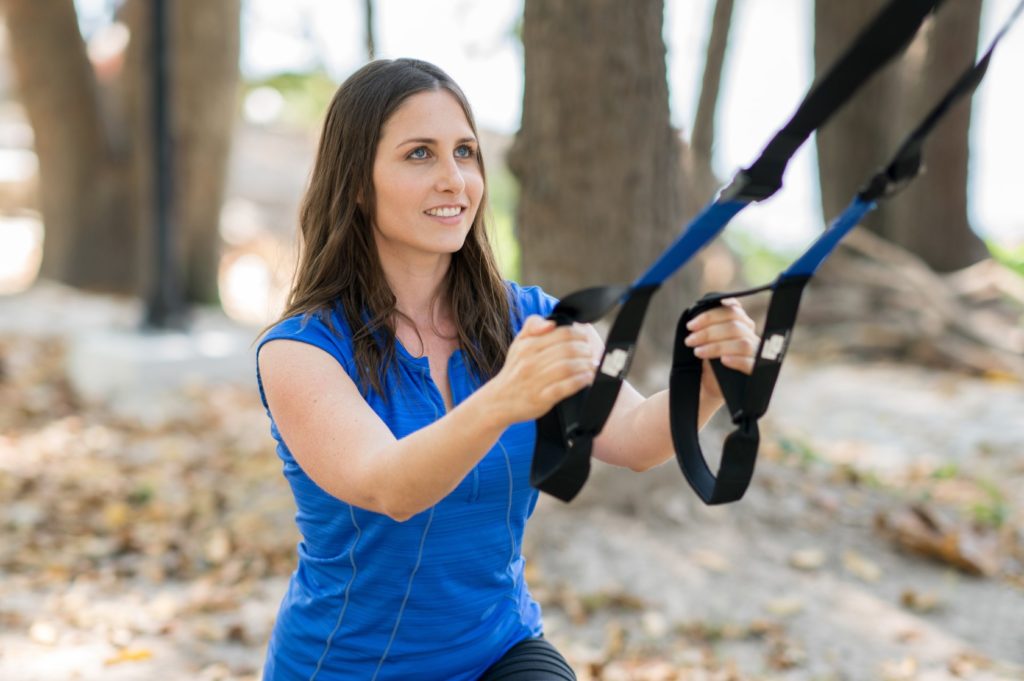I get a lot of questions about PCOS and exercise, so I’ve decided to answer the most frequently asked PCOS strength training questions asked by my readers all in one place.
PCOS and Exercise FAQs
Why is strength training so good for PCOS?
First of all, strength training is good for most people. It prevents many of the side effects of aging like heart disease, osteoporosis, and age-related weight gain. Plus, it’s good at mitigating the effects of common chronic diseases like diabetes.
For PCOS women specifically, strength training can stimulate your metabolism and cause it to function better. Strength training reduces insulin resistance (which is one of the underlying causes of PCOS), lowers cholesterol, and raises your metabolic rate so that you burn more calories throughout the day.
You can read more on this topic by checking out my post 3 Reasons Why Strength Training is the Best Exercise for PCOS.
Will strength training raise my testosterone levels?
No, that does not seem to be the case. In fact, a recent PCOS and exercise study suggests that strength training will lower androgens.
Insulin resistance, belly fat, and obesity can cause or worsen hyperandrogenism in women with PCOS. Strength training is a proven method for managing insulin resistance, belly fat, and obesity. Therefore, strength training can improve your hormonal balance. That’s the line of thought that leading PCOS physicians follow, and I have seen the same with my training clients.
Do I have to lift weights to strength train?

Traditional weight lifting is fun and empowering. I love it! But it is not the only way to strength train. Kettlebells, bodyweight training, and resistance bands work well, too.
My all-time favorite way to get strong is suspension training. I love suspension trainers because you can work out with them anywhere, and they will get you great results! When I lived abroad, I worked out with a suspension trainer in my Airbnb, parks, on the beach, pretty much everywhere. It was the best part of my day, plus I was able to stay in great shape for all of our travel adventures.
You can buy my favorite suspension trainer herefor a great price.
How much weight should I lift?
Not increasing your weight frequently enough is the most common mistake women make. I get it – it’s intimidating the first time you pick up a 30 pound set of dumbbells. However, you must keep challenging your body in order to get results.
Start with a weight you feel confident holding and work your way up. For most exercises, you will increase your weight every couple of workouts. If you get to the last repetition in a set and feel like you could do one or two more reps in good form, try to do the exercise with a heavier weight for the next set.
Will strength training make me look bulky?
To tell you the truth, I have never taught a woman to strength train who was not happy with the results. Sure, if you begin an aggressive weightlifting program and pursue it for a few years, you might be able to look like an action figure. But let me be clear – that would take a LOT of concentrated effort.
Just to give you an idea, I have been lifting weights for 20 years give or take. I can do 90-pound lunges, pull-ups, and heavy bench presses. Yet I do not have nearly enough muscle to compete in a women’s bodybuilding competition.
I’ve been teaching women to strength train for nine years. Many of my clients had the same concern. They put their trust in me and discovered that strength training gave them some seriously sexy curves and a deep sense of empowerment.






